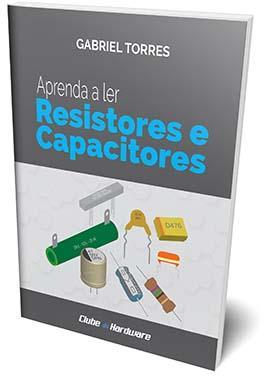
Reginaldo_As
-
Posts
9 -
Cadastrado em
-
Última visita
Tipo de conteúdo
Artigos
Selos
Fabricantes
Livros
Cursos
Análises
Fórum
posts postados por Reginaldo_As
-
-
Em 02/02/2017 às 15:18, Fervolt disse:
Olá,
Tente esse código.
termostato.h
//Processador usado #include <16F628A.h> //Fusíveis de configuração do processador #FUSES NOWDT //No Watch Dog Timer #FUSES XT #FUSES PUT //Power Up Timer #FUSES PROTECT //Code protected from reads #FUSES NOBROWNOUT //No brownout reset #FUSES MCLR #FUSES NOLVP //No low voltage prgming, B3(PIC16) or B5(PIC18) used for I/O #FUSES NOCPD //No EE protection //#FUSES RESERVED //Used to set the reserved FUSE bits //Frequencia de trabalho = 4 MHz #use delay(clock=4000000)main.c
#include <termostato.h> #include <lcd.h> #define TC_DATA PIN_A0 #define TC_CLK PIN_A1 #define TC_CS PIN_A2 #include <max6675.c> //*********** Rotina principal **************// void main(){ setup_comparator(NC_NC_NC_NC); //Inicializa LCD lcd_ini(); //****************** LOOP PRINCIPAL ******************** while(true){ limpa_tela(); linha_1(1); printf(lcd_escreve,"Temp: %Lu", do_everything()); lcd_envia_byte(1,0xdf); //simbolo grau ° printf(lcd_escreve, "C "); cursor(0); delay_ms(1000); } //**************** FIM LOOP PRINCIPAL ****************** }
max6675.c
int1 thermocouple_error; //a handy dandy global error flag to tell you if a thermocouple is connected or not void init_TC(void){ output_low(TC_CLK); output_low(TC_DATA); output_high(TC_CS); //if we idle high, the chip keeps doing conversions. Change this if you like } int16 read_TC(void){ //It takes 200ms (ish) for the MAX6675 to perform a conversion int8 i; int16 data; output_low(TC_CS); //stop any conversion processes delay_us(1); //and give it some time to power up (not very much, admittedly) for (i=0;i<16;i++){ output_high(TC_CLK); delay_us(1); output_low(TC_CLK); shift_left(&data,2,input(TC_DATA)); //reads in 2 bytes to data from the pin TC_DATA } thermocouple_error=bit_test(data,2); //this is the thermocouple status bit output_high(TC_CS); return(data); } int16 sortout(int16 raw){ return(0x0FFF & (raw>>4)); //returns only the bits converning temperature } //float toFloat_TC(int16 tmp){ // return((float)tmp/4.0); //adjusts data to floating point format, and accounts for the decimal point //} int16 do_everything(void){ init_TC(); delay_ms(200); //200ms is a long time to be doing nothing. use a timer interrupt to avoid wasting time here return(sortout(read_TC()) / 4); }lcd.h
//Biblioteca para manipulação do módulo LCD Alfanumérico //16 caracteres x 2 linhas //LCD #define lcd_enable pin_b1 // pino enable do LCD #define lcd_rs pin_B0 // pino rs do LCD #define lcd_d4 pin_B2 // pino de dados d4 do LCD #define lcd_d5 pin_B3 // pino de dados d5 do LCD #define lcd_d6 pin_B4 // pino de dados d6 do LCD #define lcd_d7 pin_B5 // pino de dados d7 do LCD //Define tipo de caracter a ser impresso #define lcd_type 2 // 0=5x7, 1=5x10, 2=2 linhas //Contante do tipo byte CONST INI_LCD[4] = {0x20 | (lcd_type << 2), 0xf, 1, 6}; void lcd_envia_nibble( byte dado ){ //delay_ms(1); output_bit(lcd_d4,bit_test(dado,0)); output_bit(lcd_d5,bit_test(dado,1)); output_bit(lcd_d6,bit_test(dado,2)); output_bit(lcd_d7,bit_test(dado,3)); output_high(lcd_enable); delay_us(500); output_low(lcd_enable); } void lcd_envia_byte( boolean endereco, byte dado ){ output_low(lcd_rs); output_bit(lcd_rs,endereco); output_low(lcd_enable); lcd_envia_nibble(dado >> 4); lcd_envia_nibble(dado & 0x0f); } void lcd_escreve(char c){ lcd_envia_byte(1,c); } void cursor(int temp){ int dado = 0x0E; if(!temp){ dado = dado - 2; } lcd_envia_byte(0,dado); } void limpa_tela(){ lcd_envia_byte(0,0x01); //limpa tela delay_ms(2); } void linha_1(int adr){ if(!adr){ adr = 0x80; }else{ adr = 0x80 + adr; } lcd_envia_byte(0,adr); } void linha_2(int adr){ if(!adr){ adr = 0xC0; }else{ adr = 0xC0 + adr; } lcd_envia_byte(0,adr); } void lcd_ini(){ byte conta; output_low(lcd_d4); output_low(lcd_d5); output_low(lcd_d6); output_low(lcd_d7); output_low(lcd_rs); output_low(lcd_enable); delay_ms(15); for(conta=1;conta<=3;++conta){ lcd_envia_nibble(3); delay_ms(2); } lcd_envia_nibble(2); for(conta=0;conta<=3;++conta){ lcd_envia_byte(0,INI_LCD[conta]); delay_ms(2); } cursor(0); }Att,
Esse codigo é compatível com pic 18F? preciso de ajuda pra programar um controlador de temperatura
Sobre o Clube do Hardware
No ar desde 1996, o Clube do Hardware é uma das maiores, mais antigas e mais respeitadas comunidades sobre tecnologia do Brasil. Leia mais
Direitos autorais
Não permitimos a cópia ou reprodução do conteúdo do nosso site, fórum, newsletters e redes sociais, mesmo citando-se a fonte. Leia mais


Pic16f877a + max6675
em Microcontroladores
Postado
@Fervolt Bom dia!
Você tem esse projeto salvo?
Poderia ajudar a implementar um controle PID nele para controle de temperatura, acionando um opto acoplador que controla um TRIAC? Não estou sabendo como criar os arquivos <termostato.h> e <lcd.h> que serão importados na compilação do Main ... O arquivo max6675.c é compilado a parte ou junto com o main?
Tenho um kit desenvolvimento com 18F4550 e também o CI do PIC16F628A, poderia implementar em um deles... Não consigo mandar mensagem direto, como faço pra falar direto com você, pode deixar seu contato?